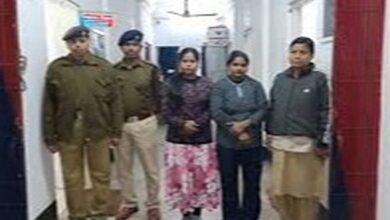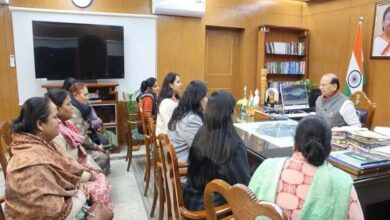Delhi Directorate of Education: All classes up to class 12 will be conducted in hybrid mode
New Delhi: The Directorate of Education of the Delhi Government has instructed all schools in the nation’s capital to comply with the Commission for the Air Quality Management’s (CAQM) directive, which was issued on Monday and mandated that all classes up to standard 12 be held in hybrid mode, combining both online and physical modes.

According to the CAQM order, “State governments in the NCR shall ensure that all classes up to 12th Standard are conducted in a ‘hybrid’ mode, i.e., both in “physical” and also in “online” modes, wherever online mode is feasible in the districts of Gautam Buddh Nagar, Ahmedabad, Gurugram, and Faridabad in the NCR.”
In accordance with the CAQM order, the Delhi Cantonment Board, NDMC, MCD, and heads of all government-aided and unaided private schools under its jurisdiction have been instructed by the Directorate of Education, Government of Delhi, to begin offering hybrid classes to students in all classes immediately until further directives.
In order to lessen the interruptions to schooling brought on by poor air quality in the National Capital Region (NCR), the Commission for Air Quality Management (CAQM) earlier on Monday approved relaxations under the Graded Response Action Plan (GRAP). Specifically for schools and colleges, the measures include relaxing Clause 11 of GRAP Stage-III and Clauses 5 and 8 of GRAP Stage-IV.
Students may attend lessons in-person or virtually thanks to the relaxation, which enables educational institutions to use a “hybrid” structure. Where possible, children and their guardians in Delhi, Gurugram, Faridabad, Ghaziabad, and Gautam Buddh Nagar will have the option of online education.
This ruling comes after the Supreme Court ordered the CAQM to examine GRAP limitations in light of their effects on education in the case of MC Mehta vs. Union of India, which was decided on November 25. The court raised a number of issues while highlighting the need for giving education first priority.
First of all, the court remarked, “A large number of students are being deprived of the facility of mid-day meals as schools and anganwadis are closed.”
It went on to say, “Many students lack the resources necessary to benefit from online learning. Many schools lack the resources necessary to provide online instruction.
Additionally, the court stated, “The residences of many students do not have air purifiers, and therefore, there may not be any difference between children sitting at home and those attending school.”





